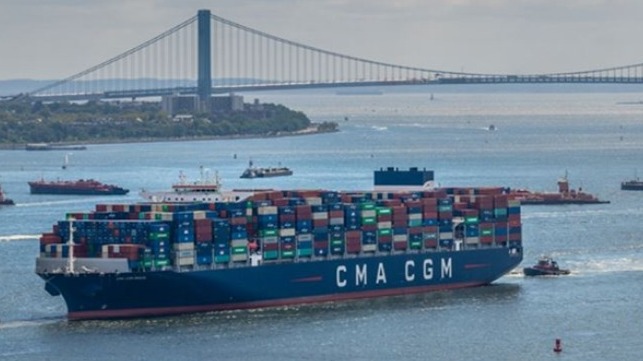CMA CGM and Two Intermediary Companies Pay $2.3M in FMC Penalties

The Federal Maritime Commission collected more than $2.3 million in civil penalty payments, and commitments to reform specific business practices from CMA CGM along with two intermediary companies. The companies did not admit to any violations of the law but entered into compromise agreements before the FMC initiated formal enforcement actions.
The settlements are the latest in response to a flood of complaints the FMC has been receiving from shippers dating back to the pandemic and alleged billing and business practice abuses during the surge in container volumes. At the same time, the FMC’s final rule on Demurrage and Detention Billing Practices took full effect yesterday, May 28, 2024, as another element designed in response to the multitude of complaints.
CMA CGM paid $1,975,000 to resolve allegations the FMC says that the ocean carrier overbroadly defined and applied its definition of merchant in a bill of lading to demand payment from a third party who should not have been billed. In addition to paying civil penalties, it will also furnish restitution to impacted third parties in the form of refunds and waivers, and it has committed to comply with the FMC’s Demurrage and Detention Billing Rule.
At issue was an issue of which parties could be billed for the D&D fees. CMA CGM is agreeing to limit the definition of merchant in its bills of lading to shippers, consignees, and persons with a beneficial interest in the cargo as defined in the FMC’s rule. The new rule on D&D fees moves to limit third-party billing but the FMC also recently issued a clarification on who the rule permits D&D bills to be sent to and the rule’s application to carrier-trucker relationships.
Two companies that are ocean transportation intermediaries (OTI) Vanguard Logistics Services and Shipco Transport also entered into agreements. Vanguard paid $175,000 to resolve allegations the FMC says that it knowingly and willfully accepted cargo from, or transported cargo for, the accounts of OTIs that did not have bonds, insurance, or other sureties as required by law. Vanguard has agreed to undertake an audit of its internal practices and procedures and will provide quarterly updates as well as report on remedial actions it takes in response to the audit’s findings. Shipco paid $155,000 to resolve three allegations of misconduct, including a similar issue of a lack of bonds, insurance, or other sureties. There were also two issues when it reportedly allowed an unlicensed OTI to obtain transportation for property at less than the rates or charges that would otherwise be applicable. Both Vanguard and Shipco have agreed in their respective compromise agreements to fully cooperate with FMC in any future investigatory or enforcement efforts.

that matters most
Get the latest maritime news delivered to your inbox daily.
The FMC assets that the new rules on D&D fees provide greater clarity on issues including certain detention and demurrage billing practices, such as the determination of which parties may appropriately be billed for demurrage or detention charges, and sets timeframes for issuing invoices, disputing charges with the billing party, and resolving such disputes. The final rule also requires common carriers and marine terminal operators to include specific minimum information on demurrage and detention invoices.
Reforms to the D&D regulations were one of the key elements of the 2022 Ocean Shipping Reform Act. Many shippers complained to the U.S. Congress over alleged abuses and exorbitant charges they were receiving, often when terminals could not process and receive containers due to congestion.
